TNV: breakthrough of national channel into world ether
About how the company preserves its profitability without ‘gutter press’ and ‘blood’
Realnoe Vremya continues the special project TAIF-25 dedicated to the anniversary of one of the largest holdings of Russia and Tatarstan. In the early noughties, TAIF actively participated in the appearance of republic's own TV channel. Novy Vek (New Century) has a mission to help the language and the culture to reach the international media scene. Within more than 10 years, they covered a way from a couple of hours of broadcasting on the territory of Tatarstan to round-the-clock broadcasting worldwide. Today the company is composed of bilingual TNV-Tatarstan channel, TNV-Planeta in Tatar only and Tatar full-time Bolgar radio FM. In this material of the special project we tell how the international television formed in Tatarstan, the role of TAIF in that process and what difficulties the bilingual channel copes with.
Requirements of the time
Moscow, the late autumn of 2001. It was cold and foul outside the window of the Mass Media and Mass Communications Agency. In the hall, where the committee of a contest was situated, a heated discussion took place. Zilya Valieva, the Minister of Press, Television and Radio Broadcasting and Means of Mass Communications of Tatarstan, Andrey Grigoryev, the head of the Efir TV Company, and Ilshat Aminov, the chairman of the Tatarstan Public TV and Radio Company – they all defended the project of the Novy Vek TV and Radio Company. And Mikhail Seslavinsky, politician and journalist, famous presenter Vladimir Pozner and other Committee members were bombarding the enthusiasts with questions of the new channel with their own niche: to join all the Tatars spread in different parts of the world to their historic homeland. The licence on broadcasting in Kazan using a two-metre transmitter was obtained due to the study of all nuances in detail and prior diplomatic manoeuvres. Those three people, who made a stand for the launch of the new TV Company, still remember that euphoric day.
But this story four years began earlier when Andrey Grigoriev, a telecommunications worker, by the way, told Ilshat Aminov about free one-metre transmitter in Tatarstan that they could occupy. 'We came to Mintimer Shaimiev with this offer. The President, in turn, was surprised. ''What transmitter?'' He said that we needed to create our separate bilingual channel that could broadcast to the world and fulfil the task – preservation of the traditions and the culture of the Tatars,' says Ilshat Aminov, the director general of the TV and radio Broadcasting Company. So, from a desire to create their own channel international Tatar television formed.
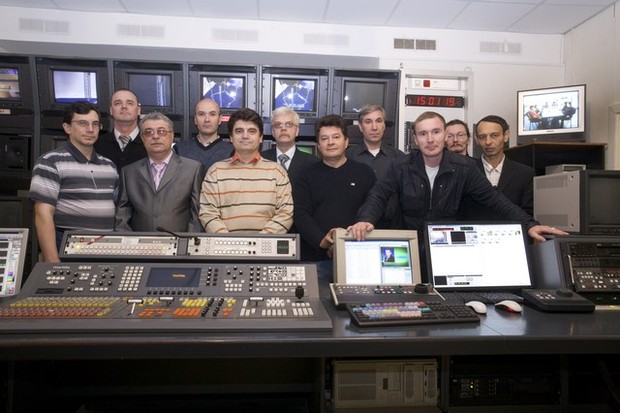
Strictly speaking, the groundwork was laid by uneasy events in the 90s, in the country after Perestroika political reforms started, and the growth of national consciousness became more obvious. Everything what happened in Tatarstan was shaped by the central Mass Media superficially. As a rule, the materials from regions hit national channels in the case of any catastrophes and incidents. It was important to create their own channel that could impartially and rapidly cover important events of the republic. Moreover, the course of the federal centre on the strengthening power vertical touched the TV. The only channel of the republic Public TV and Radio CompanyTatarstan became a part of the National State Television and Radio Broadcasting Company. It was clear that the television of the republic could simply disappear. In the early noughties, the creation of the satellite channel was a demand of the times. 'Then the decision of the administration of Tatarstan was very bold on the account of almost no experience in satellite television. There were neither spare funds nor support at the federal level,' says Ilshat Aminov.
Because of the lack of money development of the communication and television industry was carried out by means of barter transactions and raised money. In 1999, the Ministry of Communication of the republic started to plan and construct a television and sound broadcasting on separate channels. If, according to the standards, that process took 3-3,5 years, the telecommunications workers had a maximum of 1,5 year to solve problems. And they did it.
In 2000, the Radio and Television Transmitting Centre of Tatarstan put a 5kW television transmitter and 1kW FM-transmitter of sound broadcasting into operation in Kazan. And in 2001 powerful transmitters were installed in Naberezhnye Chelny, Nizhnekamsk, Leninogorsk, Shemordan and Bolshiye Polyana. The VHF-transmitters were set there as well. More than 80 receiving stations of satellite television were brought into action to broadcast the programmes of TNV, and that gave an opportunity for those who wished to watch and listen to the programmes of Tatarstan not only in the republic but also outside the region. So, Tatarstan-Novy Vek (TNV) channel and Yana Gasyr (New Century) radio station aired on 26 August 2002. In Russia, it was one of the first regional satellite channels with its own round-the-clock broadcasting.
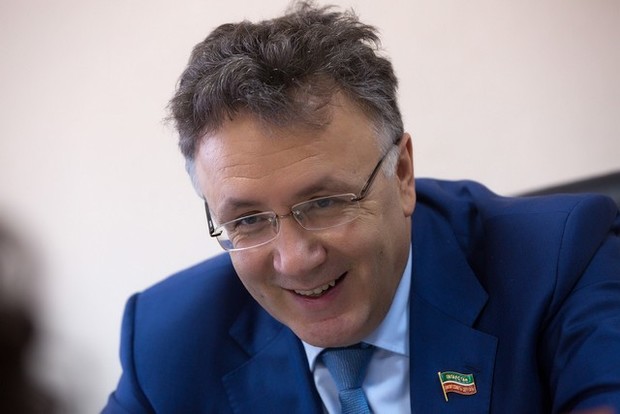
Battle-tested
In 5 days since the first working day the 'Beyrem belen, respublikam minem!' (Congratulations, my republic!) programme aired at 10 a.m. with live broadcasting interviews, congratulations and concert performances from the city streets. The newly minted collective of TNV wisely managed to coordinate the work of a hundred of people: correspondents, camera people, editors, producers, cutters, sound producers, engineers that successfully completed the work on live broadcasting.
The New Year projects also help to examine broadcasters' professionalism. Every channel has its own schedule and does its best applying efforts and all means. In 2002 TNV channel and New Century radio for the first time presented their viewers special New Year projects.
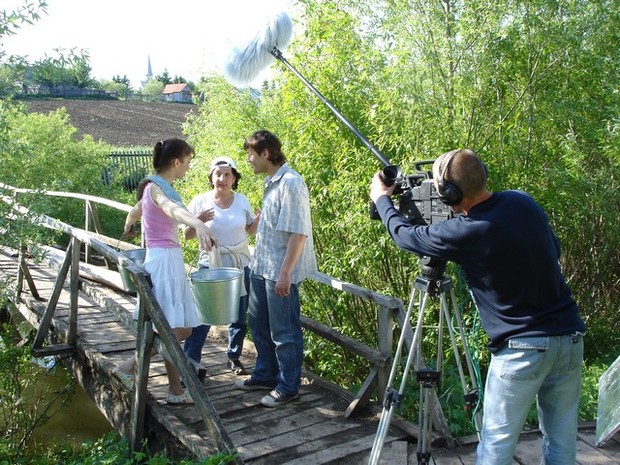
'The Tatar series that we started to shoot ourselves are among our first achievements. For instance, a series called 'Yalanayakly kyz' (Barefoot girl) was very successful that viewers wrote us letters requesting to continue shooting. And 'Barefoot girl-2' came out soon. We're also can be proud of the cycle 'Sootechestvinniki' (Compatriots), which consists of 90 series tells the story about well-known figures that were born in Tatarstan or whose life was connected with this place. We learnt to dub popular foreign films and series, documentaries, cartoons into Tatar. In general, we create a fully-fledged genre broadcasting: from news to programmes for kids, from series to live sports transmissions. In the republic we were the first TV company with our own 24-hour schedule,' says Ilshat Aminov.
As for the official recognition of the television community, during that time the employees of the company had hundreds of awards in festivals and contests of different scales. But the most glorious victory was in 2010 when 'Kuchtenech' (Gift), a programme for kids, was awarded 'Bronze Orpheus' in the 'TEFI Region-2009'.
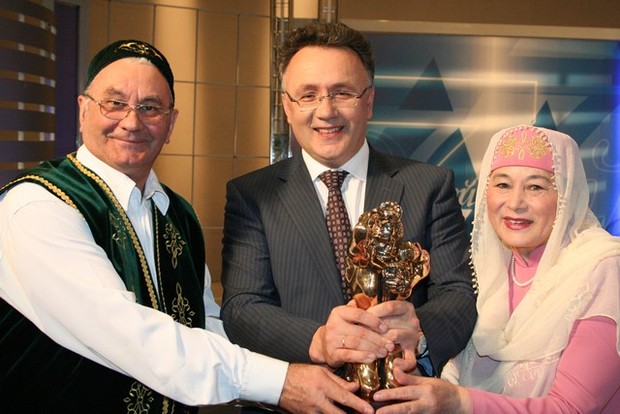
According to the fresh ratings, they follow the Russian television's tendency: humour, music, talk shows, news, and elite sport. 'Yelmay!' (Smile) humour programme, 'Kara-karshy' (Face-to-face) and 'Yashler-online' (Youngsters) talk shows, 'News of Tatarstan' bilingual informative programme, '7 Days' informational and analytical programme, 'Top 10' music chart, and hockey matches were last year's top programmes. By and large, the percentage of watching music programmes and concerts is 24,05%, films and series including their own production – 19,58%, news – 17,01% and sports transmissions – 13,06%.
The last investigations of TNS Gallup Media, which was held at the end of the previous year, state that every second citizen of Kazan watched TNV-Tatarstan. Now the number of the target audience of TNV-Tatarstan only reaches 12,5m people or 750,000 people per month (TNS Gallup Media, November 2014). For instance, the federal channels like Russia 2, Domashny (Home) and Zvezda (Star) have the same coverage for the same period of time. Last year the report showed that about 69% of viewers of the channel are married.
In January 2015, the Centre of Analytical Investigations and Elaborations analysed the media preferences in the different districts of the republic. The results demonstrated that most viewers among all local channels prefer TNV; 27,9% of people chose this variant. Only three federal channels head the rating.
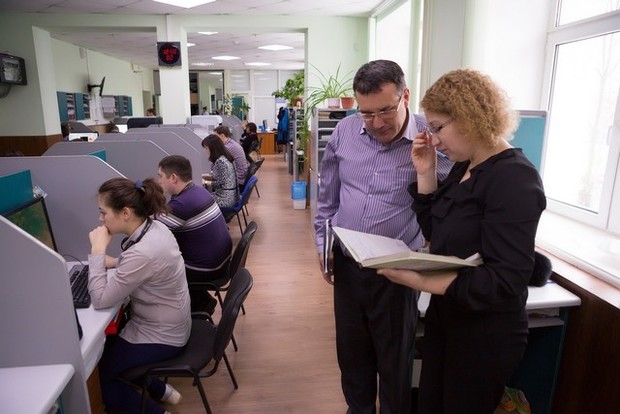
From channel creation to digitization of a century-old archive
TAIF actively participates in constant development and formation of New Century. At the President's suggestion, one of the largest corporates of Russia started to help the TV and Radio Company in 2001 and became its major shareholder (51% of shares). Ilshat Aminov states that the ownership equity, which initially was invested in the technical equipping and development of the TV channel, started to yield dividends.
In 2005 with financial support from the founder TNV got a modern mobile digital television station. It enables to broadcast from any geographical point of the republic. Even today it is the principal station for broadcasting the most important events: from Republic Day to sports competitions. A new up-to-date studio in the 'Pyramid' Culture and Leisure Complex was created that allowed to use the building as a set.
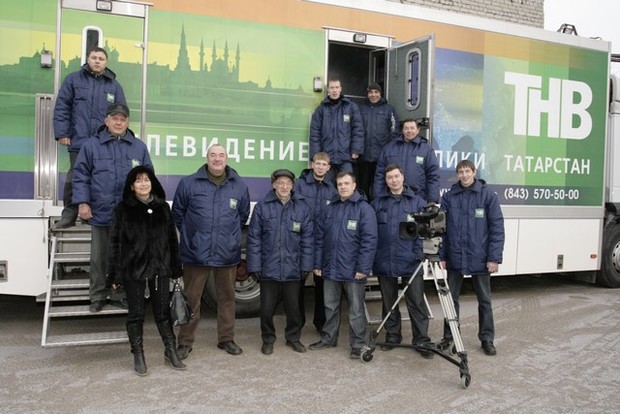
'We also had one challenge more which was a full-sized re-organization of all our video and sound archive. It was tens of thousands of units of storage in poor condition, to put it mildly. We managed to salvage and save most part of the archived record. All information kept in films, in bobbins was digitalized. Nowadays a century-old records are handy,' Ilshat Aminov notes.
In recent years in the work of the TV and Radio Company there was a major technological leap: the transfer from analogue to digital equipment that suddenly allowed to widen choices and get closer to the world standards of TV and radio broadcasting. All available broadcasting technologies like cable, analogue terrestrial over-the-air broadcasting, digital terrestrial over-the-air broadcasting, satellite and Internet broadcastings were mastered in order to satisfy the modern viewers' requirements.
Ilshat Aminov declares that TAIF doesn't interfere in the creative process. To be honest, sometimes they give us recommendations and express their requests. But it refers to the other founder – the government. From the very beginning TAIF manifests that they don't interfere in politics, and they are engaged only in the economy.

Anyway, for the major shareholder the TV and Radio Company is supposed to be a business structure, this is why TNV annually has fixed financial plans without 'blood' and gossip, which always draw large audiences, that are difficult to fulfil.
'Right, we follow the concept of positive broadcasting, canons of classic social and political television. There is no seamy side, scandal for the sake of another one, violation of personal privacy, items with erotic content on screen… If something close to that slips, complaints start bombarding us. The Tatars are timid, they try to hide their emotions. And we need to pay attention to the viewers' mentality,' Ilshat Aminov explains us. However, market laws are ruthless: three well-known basic instincts attract our attention to a given theme and raise the rating.
In addition, bilingual broadcasting is a barrier for advertisers. Advertising in our regions is incomparable with the situation in Moscow where principal advertisers inhabit. In spite of that the profitability of the channel, according to the report in 2014, reached 2,5%. For the reason that the activity of the company is efficient, there is no necessity in financing at the expense of shareholders. Two sources form the revenue: the proceeds from ad placement and orders of the government that the company receive on a competitive basis. The first source account for 30% of the total sum of the revenue, and 70% come from the orders made by the government. The proceeds in 2014 were 530m rubles.
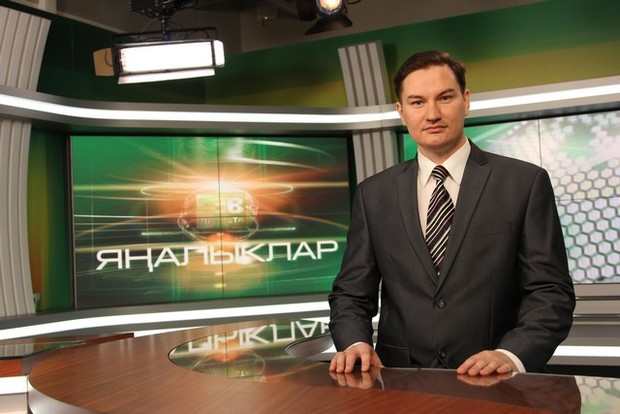
If a goal of one of the shareholders, TAIF, is to raise profits, the second one, which is the government, tries to increase the rating of programmes and the influence of TNV channels on social consciousness. Preservation of the Tatar language and coverage of the life of the Tatar Diasporas is one of the most important lines. So, it was logical to create a correspondent network as the development of the concept of broadcasting. The regions, where many represents of the big Tatar diaspora live, became offices of the network. Nowadays TNV has 9 offices: Moscow, Tumen, Ufa, Ulyanovsk, Orenburg, Yekaterinburg, Izhevsk, Almetyevsk and Naberezhnye Chelny. In Ilshat Aminov's opinion, they have very serious plans on development of the correspondent networks. They want to mark new points on the map of Russia: Perm, Samara and Penza. They're dreaming about offices abroad too: Finland, Turkey and Germany. But everything depends on the financial state of the company because the development of the correspondent network needs additional expenses. The offices are creative units that are not aimed at moneymaking; their regional sales office in Naberezhnye Chelny and Almetyevsk are designed for that goal. Recently created units are widening the clientele.
First in the history
The idea of the creation of TNV presupposed to cover demands for informative and entertaining broadcasting for the Tatars in Russia and abroad who think Tatarstan is their small motherland. Our compatriots who lived outside the republic thought that the content of the channel corresponded to the requirements of the local audience. A huge time difference in different regions impeded the perception of the channel. It is very strange to watch a morning programme of Kazan in the evening in Khabarovsk. 'The bilingual channel didn't satisfy the expectations of the compatriots who was dreaming of a fully-fledged broadcasting in the Tatar language. In the sessions of the World Congress of the Tatars and at the meetings with representatives of the diasporas of different regions we were addressed requests for a full-fledged national broadcasting. So the idea of the division of broadcasting into regional, federal, and even international sectors came to our mind. It seemed to be the most optimal manner of a solution of contradictions. The great project, launch the second channel, was supported and approved by President Rustam Minnikhanov.
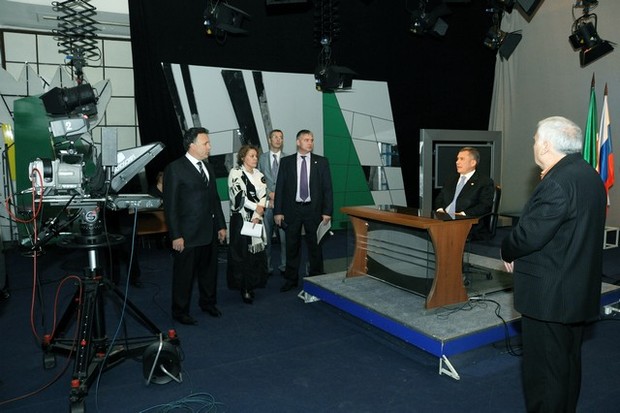
Broadcasting of the channel TNV-Planeta started on 30 August 2012. As Ilshat Aminov supposes, it was the first round-the-clock satellite TV channel in Tatar in the history of the world mass media. Fortunately, the problem of the ban on advertising in cable and satellite channels that could reach 'TNV-Planeta' was solved in their favour.
Both channels had to economically spend money. The creation of programmes, payments for telephone calls for two 24-hour satellite channels and purchase of the external content mean huge investments. The pending level of the TV and radio company in 2014 was equal to 500m rubles. For instance, Obschestennoye televidiniye (Public Television), a 24-hour channel as well, spends 1,2bn rubles per year. 'Today our prime cost of one hour of broadcasting is 100,000 rubles,' says Ilshat Aminov. Moreover, an average price on a central channel is $100,000. Good content requires good money. It is the main gap.'
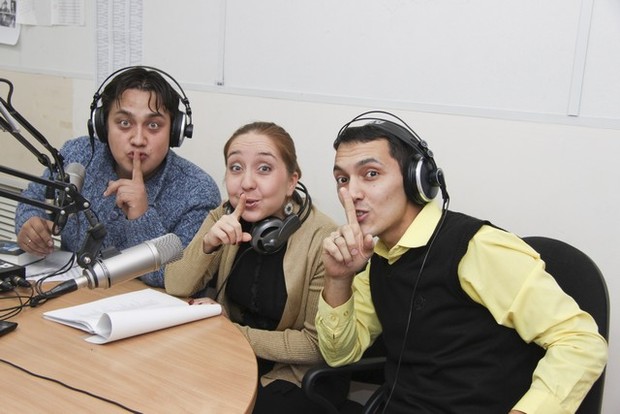
'For a Tatar radio, Bolgar gains surprisingly good money – 2,5m per month. Bolgar, which was called New Century earlier, aired simultaneously with TNV,' Ilshat Aminov explained us. It is the only radio station in the republic that reached a 100% coverage. It became popular among listeners due to radio programmes, a number of special offers and music politics of a 'hit single' of Tatar singers. Its fan came from regions of Tatarstan, it was necessary to conquer the capital too. In 2011, the administration of TAIF admitted a stagnation both in the programme and in the brand development of New Century. There was a decision to reload by changing its name, logotype, and concept. Since February 2012, the radio has been bearing the name of Bolgar. The team makes a goal of exceeding the limits of provincial Tatar radio and becoming a source of the main information in mother language for active, independent and successful people. The major shareholder supported the idea of TNV of the organization of the national music award of the radio Bolgar according to popular voting results that additionally increases the commercialization of the radio.
As can be seen from the results of the enquiry, which was held by the Centre of Analogue Investigation and Elaborations in the region of the republic, radio Bolgar is the highest-rated radio among radio listeners (among 22 local and federal radio stations). Further development of radio and two satellite channels is impossible without professional human resources. Ilshat Aminov's laboratory in the Kazan Federal University is successfully developing for the purposeful preparation of future specialists. There are strong ties with the Kazan State University of Culture and Art. Many workers of the TV and radio company teach here in Cinema and Television Department, and they inspect students in advance, by the way.
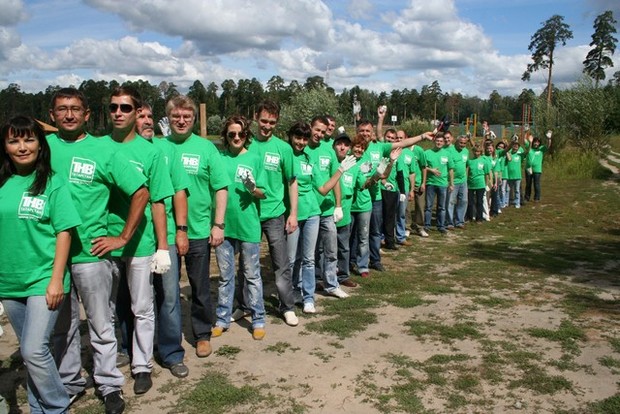
Among a pile of plans and against a background of growing information noise it's important to keep the already earned trust. Two years ago sociologists of Kazan organized a large-scale investigation of the regional information market. The concept of impartiality of Tatarstan-Novy Vek was highly estimated among other channels of the republic (84,9%). 'There is only one recipe', said Ilshat Aminov, 'honesty, respect towards viewers and listeners, reliable and latest information. Another way to earn and keep the trust doesn't exist.'
TNV (12+)